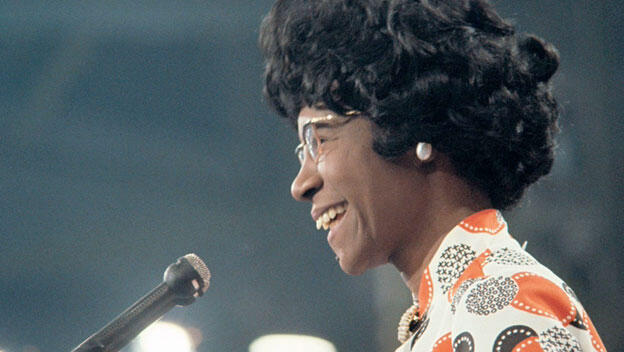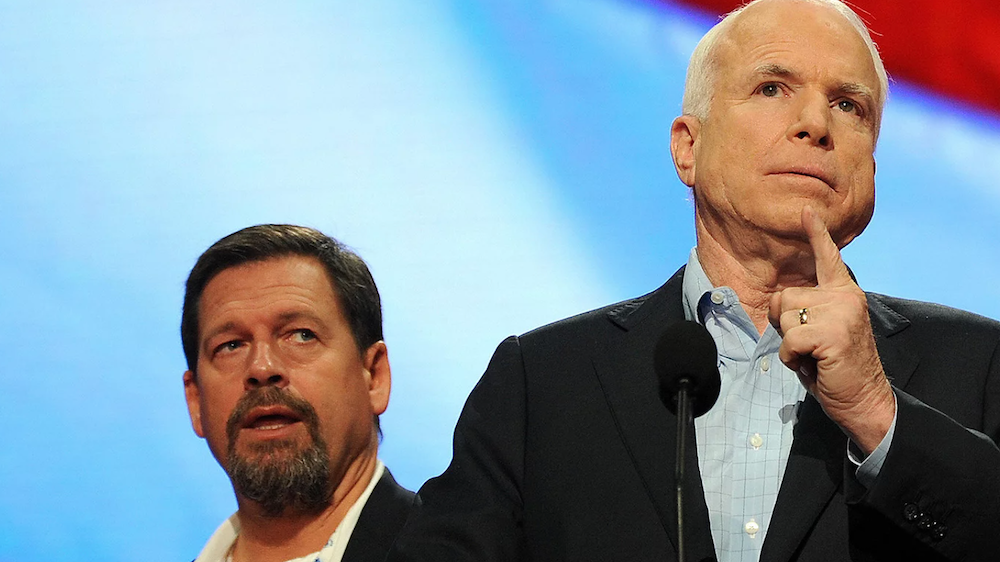Words, for Good and Ill
June 07, 2021
"Voices of History: Speeches that Changed the World" is a celebration of, and a warning against, the power of oral rhetoric.
Review of: Voices of History: Speeches that Changed the World by Simon Sebag Montefiore.
Most speechwriters would likely not know the name Mettius Pompusianus, but perhaps they should. Mettius was one of many potential opponents summarily sentenced to death in the late first century AD by the Roman emperor Domitian. What was Mettius’ crime? According to ancient historian Cassius Dio, Domitian took exception to reports “that [Mettius] had excerpted and was wont to read the speeches of kings and other leaders that are recorded in [the works of Roman historian] Livy.”
Did Domitian believe that the close study of such a speech anthology meant Mettius was training himself as a speaker, perhaps to try to become emperor? Or was Domitian somehow annoyed or angered by Mettius’ conspicuous public veneration of past speeches (perhaps inviting unkind comparisons with Domitian’s style of speaking)? The written record does not shed much light on the emperor’s motives. All we can surmise is that Mettius’s speech anthology, in some way, seems to have expressed sort of power that Domitian found threatening.
As its title implies, Voices of History: Speeches that Changed the World begins with the premise that words do indeed have great power—and demonstrates this through excerpts from more than 80 historically-significant speeches. Simon Sebag Montefiore’s introduction the book notes that it is false to assume that “the speeches that changed the world were the most poetic, truthful and decent; hymns of liberty, paeans of tolerance.” The uncomfortable truth is that:
…the most powerful speeches are not all about love, beauty and poetry—they are often atrocious projections of naked power, of lies, hatred and calumny, dehumanizing so-called ‘enemies’ with cruel hyperbole. Such speeches move worlds just as much as those of the noblest spirit and heroic courage. This collection includes the best and worst… Above all, I include these wicked speeches because in our own times, the very truth of these events has been challenged in an age of historical ignorance, resurgent hatreds and conspiracy theories. It has never been more important to see and hear the evidence, more essential to know such things, and realize there were times when mere words helped make violence and hatred not just normal and acceptable but desirable.
And it is a sweeping collection of oratorical highs and lows, with excerpts from speeches by numerous Soviet, Nazi and terrorist leaders side-by-side with remarks from speakers representing the great democratic and activist surges of the last 250 years. Through this single volume we can sample words from Cleopatra all the way to Greta Thunberg—from Alexander the Great to Kamala Harris, from the ancient world to the current day.
And there’s also Genghis Khan…Ronald Reagan…Eva Peron…Socrates…Michelle Obama…Pope Urban II….General George Patton…Susan B. Anthony…as the Hollywood publicists used to proclaim about old historical movies: “A Cast of Thousands!” Only a trained historian like Montefiore could summon together such a wide-ranging set of speakers; and only a lively writer like him could put them so ably into context with his accompanying notes on each speech.
The story of the unfortunate Mettius Pompusianus shows us that speech anthologies are a surprisingly ancient form of literature. (Some historians believe the first speech anthologies consisted of selections from the wartime orations that populate the Athenian historian Thucydides’ Peloponnesian War.) Whatever age in which they collected speeches for publication, the typical anthologist’s goals have been fairly straightforward over the centuries, at least in the English-speaking world. One speech compiler might be motivated by a desire to preserve “the best” or “the greatest” speeches for posterity, perhaps according to literary or rhetorical merit. Another might focus on collecting speeches that help explain key political/religious/military/etc. turning points in a society or civilization’s evolution. Yet another might weigh speeches by their “instructional” or moral value for the next generation.
By resisting the urge to profile only “great” speeches, Simon Sebag Montefiore has, commendably, found a unique way to breath new life into the speech anthology as a genre—one that opens new perspectives for his readers, while handily showcasing his skills as a researcher. His Voices of History helps us better understand the role of “the best and worst” of “the power of words” in shaping human events and action. Anyone who wants to learn more about the relationship between leadership, rhetoric and political action will draw both new knowledge and great enjoyment from Montefiore’s book.



